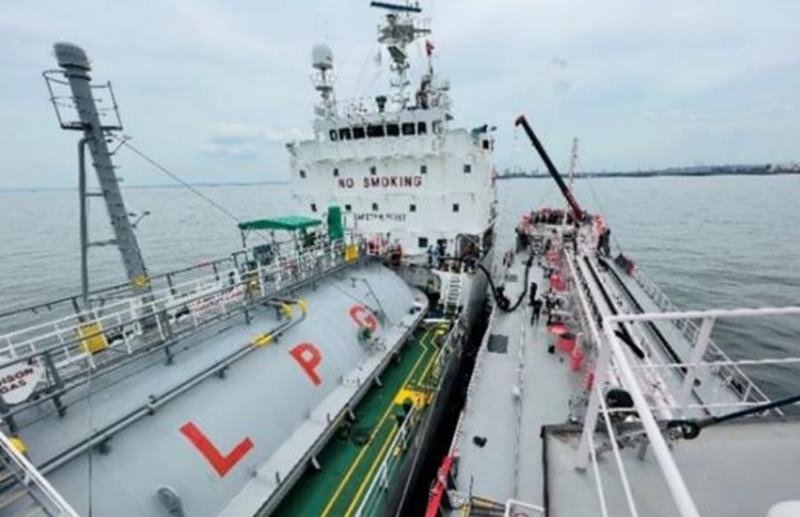The World’s First Application of Biofuel using Green Methanol and Biomass-based Waste Liquid in a Fully-pressurized LPG Carrier
Marubeni Corporation, Biofuel technology research Co., Ltd. (BTR), and Tabuchi Kaiun Co., Ltd. have successfully implemented a biofuel initiative for vessels. This biofuel is a blend comprising approximately 24% biofuel and conventional bunker heavy oil (Very Low Sulphur Fuel Oil; VLSFO).
Manufactured in Japan using technology jointly owned by Marubeni and BTR, it marks the world’s first application of such biofuel in a fully-pressurized LPG carrier, specifically the vessel Buena Reina operated by Tabuchi and chartered by Marubeni. The use of this biofuel resulted in approximately a 19% reduction in CO2 emissions per voyage, ensuring safe navigation through the utilization of Tabuchi’s extensive technical expertise in the field.
The Biofuel is composed of biomass-based waste liquid, a by-product of biodiesel production from waste cooking oil, and green methanol obtained from by-products of wood pulp manufacturing. This innovative process enables thorough recycling of waste liquid that would otherwise become industrial waste. Moreover, the use of green methanol, instead of conventional methanol derived from fossil resources, makes the Biofuel a fully recycled green fuel. As a result, the Biofuel virtually eliminates CO2 emissions, making it an environmentally friendly choice.
The Keihin area, where the refueling of the Buena Reina took place, is known for having the largest port in Japan in terms of cargo volume. This marks the first time that a biofuel has been supplied to an ocean-going vessel in this area. Additionally, during the refueling operation on the Buena Reina, the world’s first pure battery tanker, the Asahi, operated by Asahi Tanker Co., Ltd. and chartered by Marubeni, achieved zero greenhouse gas emissions. The Asahi utilizes renewable energy sources, resulting in a sustainable bunkering process without any emissions.
The International Maritime Organization (IMO) has established a target for the global shipping industry to reduce greenhouse gas (GHG) emissions by 50% by 2050, compared to 2008 levels. Japan, too, aims to achieve carbon neutrality by 2050. In response to the CII Fuel Efficiency Performance System, which became effective this year, various measures are being considered to decrease GHG emissions. Biofuels are particularly expected to play a significant role in expanding supply volumes as an effective measure for GHG emission reduction.
Marubeni and BTR will actively promote the Technology for both domestic and international sales. They will advocate the use of green methanol and low-carbon emission methanol procured by Marubeni. Simultaneously, Marubeni and Tabuchi will explore the utilization of sustainable biofuels. The three companies will leverage their respective expertise to incorporate diverse methods aimed at reducing GHG emissions, including CO2, while continuously promoting and exploring initiatives to minimize environmental impacts. Marubeni will also collaborate with stakeholders from various industries to deliver highly sustainable services that cater to different customer needs, such as low-carbon and decarbonization processes.
Source Marubeni Corporation

